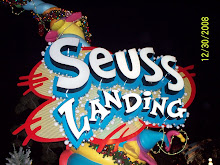Finally done reading Ulysses for class. This has been a slow process as I thought I would stick with the weekly readings instead of finishing it all at once. Loved the book, except I wouldn't recommend it to just anyone. It's a tough book to read and requires some level of familiarity and expertise. Joyce's dealing with narratives styles and character complexity is at its best. Each of the 18 chapters takes up a different writing style, eg. one is done in play form, one in questions and answers, one in tired cliches, and one in parodies of the different literary styles throughout the centuries. It's pretty fascinating the way he does it and how it reflects the subjects of the chapters and events.
Read the book if you're in for some twisted humor, witty and philosophical insights, and an extremely dull plot.
Before each class, we are required to pick any favorite quote from the book and comment on it, and so I've chosen to copy one of my entries here in hopes that will give you an idea on what to expect, and, hopefully, a push into reading it.
"Wait. Five months. Molecules all change. I am other I now. Other I got Pound.
Buzz. Buzz
But I, entelechy, form of forms, am I by memory because under everchanging forms."
(Stephen, 189)
In the middle of his intellectual debate, Stephen remembers the money he owes A.E. and attempts to justify why he still hasn't paid off his debt by arguing in an interior thought that he is no longer the person he was when he took the money, and that in five months he won't be the same person he is now. Though it may seem like a cheesy way of escaping his guilt, Stephen makes an interesting point about his existence, or rather his "actuality." Stephen's first sentence presents a view of time as linear, in which his existence is bounded by the limitations of time. Stephen immediately presents an apposing idea based on Aristotle's "entelechy" concept that existence or "actuality" is perpetuated by a "form-giving cause." The idea of the continuity of the self that transcends the boundaries of time, for some reason, brings to mind the concept of the Unity of Being as formed by W.B Yeats-- one of Stephen's (and Joyce's) influences. In his poetry, Yeats aspires to reach an organic and unified existence through art. In"Among School Children" Yeats writes:
"Or else, to alter Plato's parable,
Into the yolk and white of the one shell."
Interestingly, Yeats, as Stephen, apposes Plato and argues that his past, present, and future are as unified as the yoke, the white and the shell that formulate the existence of the egg.
--Sara A.

3 comments:
First off, thank you for passing by. I read some of your other posts a while back. Your blog is interesting.
I have read Ulysses before but I never knew most of the stuff you mentioned here. I read it for the sake of reading it. It wasn't easy. I agree with you. It does require a lot of familiarity actually. The last chapter 18 is definitely my favorite (and the easiest lol). Joyce's Molly is hilarious. It's just amazing how Joyce is working against stereotypes of femininity.
I know there's probably a lot written on Ulysses but there an interesting article that I have come across few years ago by Kery Elizabeth entitled the oxymoron of fidelity in homers Odysey and joyces Ulysses. It might be helpful.
Mocha, reading it is definitely something to be done "3ala rawagah" as they say. I used a huge encyclopedia-like "annotations" book just to understand the oh so many references he uses. And thanks about the journal. Now that I've read it again I noticed so many dumb mistakes, but it's just a journal thingy. Never really gave it that much thought.
L, Molly's chapter IS hilarious. There's actually a clip on youtube "Molly's soliloquy" that enacts the whole chapter, which we watched in class. It was very funny and just a lil disturbing at some point. Oh and there's this chapter that might interest you "Molly's Flow: the writing of Penelope and the question of women's language" by Derek Attridge in Joyce and Language. Talks about the whole "breaking the stereotypes with language".
I'm actually going to finally start writing my research paper for this class but I won't be dealing with anything of the Homeric parallels nor anything on Molly's relationships. It's on Stephen, my infatuation. I know he's kinda messed up, and we make jokes in class about how "emo" he is, but I love the character. My essay is gonna be on the appearance of maternal figures as representations of Ireland, where I study his feeling of displacement and his estrangement from his mother and country to show the constrictive effects they have on his artistic production. Anyhow, thanks for the recommendation.
Post a Comment